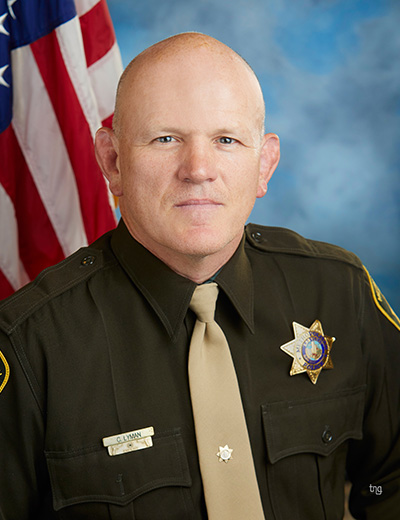
LVPPA Director
The Las Vegas Metropolitan Police Department is a large police department with an essential command structure that allows the organization to run efficiently on a daily basis. To achieve the needed command structure, LVMPD runs a testing process to fill these positions. Through this process, those of us at Metro have seen true leaders promote and also examples of folks who took a test and passed it. Sadly, there are more of the latter category for sure.
True leaders have qualities and behaviors that make employees feel supported and respected. True leaders guide, lift and inspire others through both personal example and a clear vision enacted to help the employees meet Department goals while also helping the employee achieve personal goals. Leadership is a behavior and actions, not a rank or title. As a full-time LVPPA rep, you can only imagine how often I deal with complaints about “leadership.” If you hold rank, are thinking of promoting or just want to be an informal leader of others, let me highlight a few examples of good and bad leadership.
At Metro, there are some consistent examples of ongoing poor leadership. A few are highlighted below:
- Lack of integrity. This usually manifests when leaders do not follow through with what they say they are going to do. Saying one thing and then doing another will cause those who follow you to lose confidence in you as a leader. A second persistent “Metro” integrity “pattern” is bosses who will not stand up for their own troops. You will find no acceptance or understanding as a supervisor when you throw officers under the bus to make your own position more “comfortable.” As a police officer here at Metro, I can tell you we value leaders who show integrity in the above ways, and we dismiss you as a leader if there are examples of you not doing what you say you will or you not standing up for your employees for your own benefit.
- Lack of empathy. Poor leaders are insensitive to the needs, concerns and perspectives of officers. A huge mistake that poor leaders make is to be offended by simple questions from officers. A leader could have a strong, well-reasoned position on an issue, and by dismissing or being offended by questions, that same leader could lose all support from officers who serve under them. As you promote higher and higher on the agency, demands increase, issues are constant and leaders can become burdened by less time and more problems. If a patrol officer has an issue or concern that is small compared to the multitude of issues facing a leader, be cautious of dismissing or expressing disappointment that anyone would even question your decision. Your rank, if you have any, makes you no better than anyone else. Be cautious of not considering others’ concerns or perspectives.
- Lack of resilience. Poor leaders crumble under pressure. This crumbling can take multiple forms in law enforcement applications. A supervisor can fail to act or make the call during critical incidents when lives are on the line, or vacillate and reverse course if pressure is put on in situations where reputations and staying employed is on the line. Law enforcement is fraught with challenging circumstances. If you promoted to boost yourself or because you make more or have a better retirement (by far the most common reason), there is little chance you are “leading” with integrity, showing empathy or demonstrating any resiliency. You’re selfish, and it shows … trust me. Dudes at the PPA are more than willing to call you out on your nonsense.
Let’s list a few categories where we look at a poor leader and just a supervisor, and how a good leader might respond:
- Authority. A supervisor relies on the formal authority over officers they supervise by virtue of the title they hold. Leaders inspire, guide, influence others and actually lead by example. A true leader leads through vision, values and personal behavior. When a leader corrects behavior, the officer is more likely to accept correction because the leader has legitimate authority gained through consistent personal behavior. You do not have “real” authority if you are running solely off of your title. If you are a leader, your troops will ride with you until the wheels come off, and they could care less about your rank. They are following you because you lead.
- Approach to decision-making. Supervisors simply consider what policy says, consult with higher-level managers and follow a top-down decision-making process. Leaders take input from officers, consider policy considerations and make the best decision for their team and the Department.
- Leadership style. Supervisors are directive or autocratic in leadership style and closely supervise their team’s work. Leaders, on the other hand, guide and develop their teams by empowering them to act and make decisions. Because the leader is constantly developing the officers under their charge, the officers are more likely to act within the framework set forth by a good leader.
Everyone reading this has worked for a great leader. You can think of them now and see them as you read this. They stand out because they are rare. If you have rank on the agency, you fit in either camp. You are a true leader or you are a supervisor. There is still time for any supervisor to become a leader. If you are a supervisor for the money, the title and the retirement and are happy to just do that, know that we don’t respect you. You are a supervisor only, and you lead no one. To the real leaders …thank you, and we are with you.
